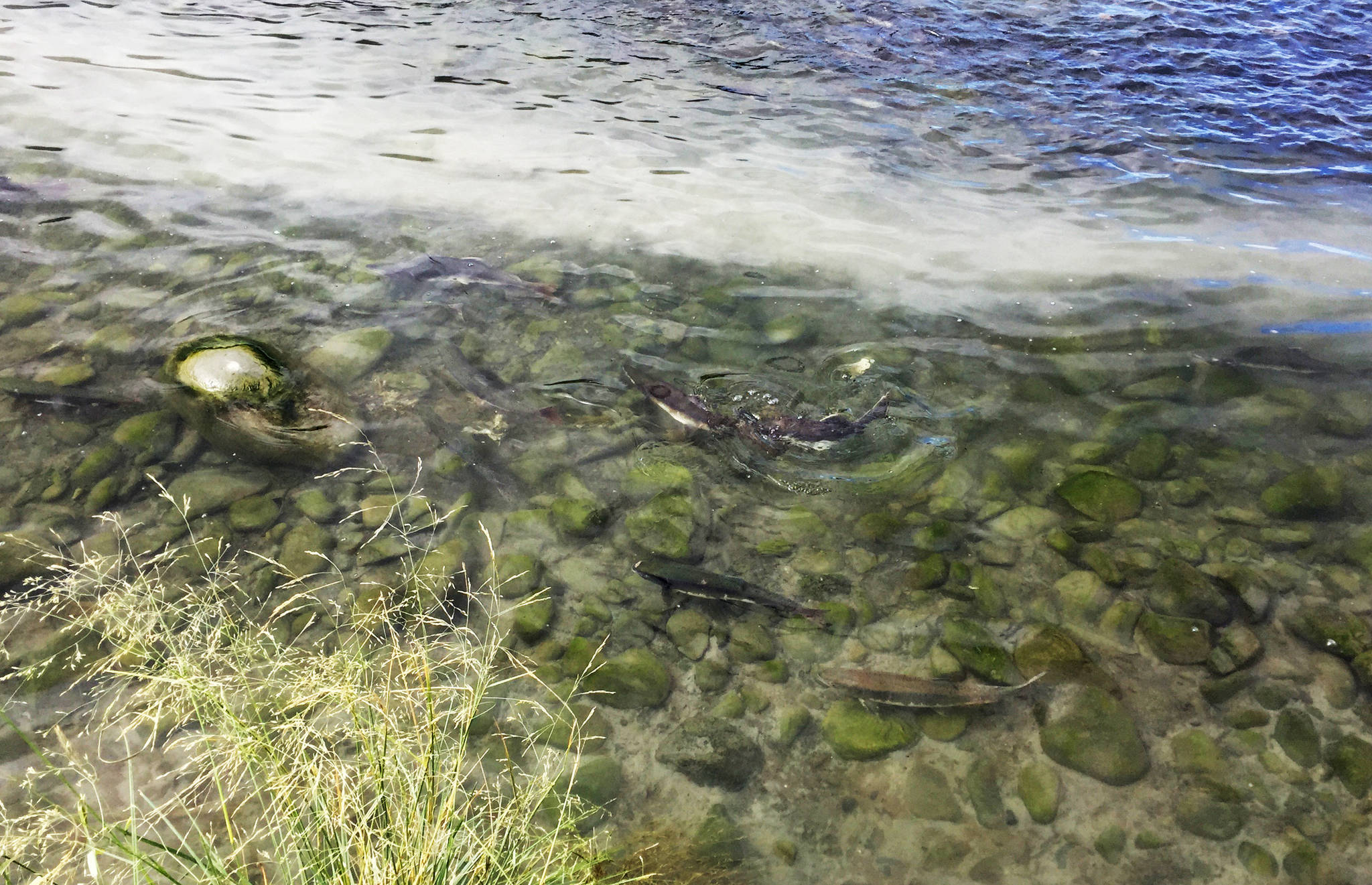As voters try to decide whether to support or go against a ballot measure related to salmon streams protections, the groups on both sides are actively campaigning and the courts have yet to decide is clear to go.
Proposition 1, commonly known as the Stand for Salmon Initiative, would revise much of the state statute regarding protections for anadromous streams, contained in Title 16 of the Alaska Administrative Code. Supporters say the measure is overdue and necessary to protect salmon as a renewable resources; opponents say the regulations contained within the measure would hamstring resource development projects in the state.
Proponents sponsored a ballot initiative that Lt. Gov. Byron Mallott, who administers the Alaska Division of Elections, initially denied. The group subsequently sued in Alaska Superior Court and a judge ruled in their favor. The state appealed the decision, and the Alaska Supreme Court heard the case in April. The state is still waiting on a decision, but as long as it comes before Sept. 5, the Division of Elections will have time to print the ballots before the election.
In the meantime, Stand for Salmon has been campaigning for support, and an opposing group — Stand for Alaska — has been campaigning just as loudly. During a joint luncheon of the Kenai and Soldotna chambers of commerce Wednesday, a Stand for Salmon representative discussed the ballot measure while Stand for Alaska representatives sat in the back of the room and two signs urging voters to vote no on proposition 1 were displayed on the driveway into the Soldotna Regional Sports Complex, where the luncheon was held.
“I go into a lot of these speaking events around the state, and really the purpose of this is to have a dialogue,” said Emily Anderson, a legal consultant for the campaign and a senior program manager for the Wild Salmon Center, during her address at the luncheon. “I think a lot of times, in politics and the political system we’re living in today, the reality is we often don’t get to have a dialogue about some of these issues that a lot of people care about on both sides of the issue.”
Much of the language relates to the Alaska Department of Fish and Game’s Habitat Division permitting process. If the initiative passes, it would establish a two-tier permitting system for “major” and “minor” activities impacting salmon streams. Most activities, like stream crossings and building docks, would constitute minor activities and would not be much different than the current process. The major permit category, which would be required for projects like the Pebble Mine, would require more scrutiny and assurances that the activities wouldn’t permanently impact salmon habitat, she said.
Anderson said the original drafting purpose was to update Title 16, which has not been changed since statehood. In response to a question about the reason for the initiative, she said Fish and Game has suggested updating the language over the years but had been unsuccessful politically and that ballot initiatives allow Alaskans to draft legislation when the Legislature does not. The Legislature considered a parallel bill in the last two sessions, House Bill 199, with language nearly identical to the ballot proposition, but it did not make it to a full vote.
Anderson said the people who drafted the ballot language listened to the discussion in the legislature and incorporated public concerns and comments.
Many of the audience’s questions were about the purpose of the initiative and its funding — specifically, where the funding comes from. Individuals and organizations have donated about $478,000 total to the campaign as of April, according to the campaign’s financial disclosure filings with the Alaska Public Offices Commission. That includes individuals both from out of state and in state, with a single $100,000 cash contribution from John Childs of Vero Beach, Florida, who owns a private equity firm in Boston. Organization support includes both Alaska-based organizations like Cook Inletkeeper and the Alaska Center and the New Venture Fund of Washington, D.C. and the Wild Salmon Center of Portland, Oregon. As of July 10, the campaign had spent a total of $989,447, according to an Alaska Public Offices Commission filing.
The Stand for Alaska campaign has vastly outstripped that in fundraising as of July 6, with about $6.3 million in total contributions so far. Stand for Alaska also has donors from both Alaska and out of state, both individuals and corporations.
Teck Alaska and Donlin Gold both donated $600,000 each on June 29, according to a July 6 filing with the Alaska Public Offices Commission. Though Teck Alaska is based in Anchorage, it’s owned by Canada-based mining corporation Teck Resources, and Donlin Gold is a joint venture between Alaska Native corporation Calista Corporation and Barrick Gold and NovaGold Resoures, both based in Canada.
Other questions at the luncheon focused on whether the initiative would kill projects like the Alaska LNG Project, which has proposed to build a major natural gas liquefaction plant in Nikiski. Anderson said the regulations contained within the proposition would not necessarily kill projects but would require them to mitigate damage to creeks and would give Fish and Game the authority to deny permits if they find protections inadequate. She cited the example of the LNG project planners rerouting the pipeline to avoid additional stream crossings.
“That’s basically consistent with what we’re talking about in the ballot initiative here — avoid habitat impacts if at all possible,” she said.
Stand for Alaska’s campaign has said the proposed language is overly burdensome and unnecessary when Title 16 already exists to protect fish habits, and does not grandfather existing projects which would likely be ineligible for permits under the new system, forcing them to shut down.
Reach Elizabeth Earl at eearl@peninsulaclarion.com.

